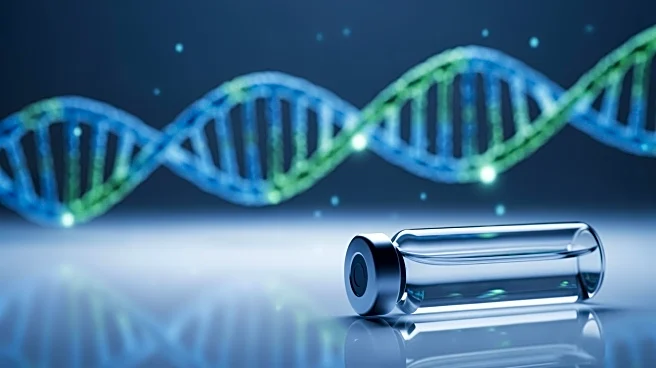What's Happening?
David Baker, PhD, director of the Institute for Protein Design at the University of Washington, recently shared insights on the use of artificial intelligence in protein design. Baker, who won a share of the 2024 Nobel Prize in Chemistry, has been instrumental
in developing AI methods to design novel proteins. These proteins have significant applications across various fields, including pharmaceuticals, vaccines, nanomaterials, and biosensors. The discussion took place during a podcast series hosted by Genetic Engineering and Biotechnology News (GEN), where Baker explored the potential and challenges of AI in transforming medicine. Seattle continues to be recognized as a hub for scientific and technological advancements, with local researchers making notable contributions to the field.
Why It's Important?
The integration of AI in protein design represents a significant advancement in biotechnology and pharmaceuticals. By enabling the creation of novel proteins, AI has the potential to revolutionize drug discovery and development, leading to more effective treatments and vaccines. This could have profound implications for public health, as it may accelerate the development of therapies for various diseases. Additionally, the use of AI in this field could enhance the precision and efficiency of research, reducing costs and time associated with traditional methods. Stakeholders in the healthcare and pharmaceutical industries stand to benefit from these innovations, potentially leading to improved patient outcomes and expanded market opportunities.
What's Next?
As AI continues to evolve, its application in protein design is expected to expand further. Researchers and industry leaders are likely to focus on refining AI algorithms to improve accuracy and reliability in protein prediction and design. Upcoming events, such as GEN's virtual event on AI in drug discovery, will provide platforms for experts to discuss advancements and collaborate on future projects. The continued investment in AI research and development could lead to breakthroughs in personalized medicine and targeted therapies, offering new hope for patients with complex conditions.
Beyond the Headlines
The ethical implications of AI in protein design are an important consideration. As AI becomes more integrated into biotechnology, questions about data privacy, consent, and the potential for unintended consequences must be addressed. Additionally, the reliance on AI could shift the landscape of scientific research, requiring new skill sets and training for researchers. Long-term, the success of AI-driven protein design could influence regulatory policies and standards in the pharmaceutical industry, necessitating updates to existing frameworks to accommodate these technological advancements.















